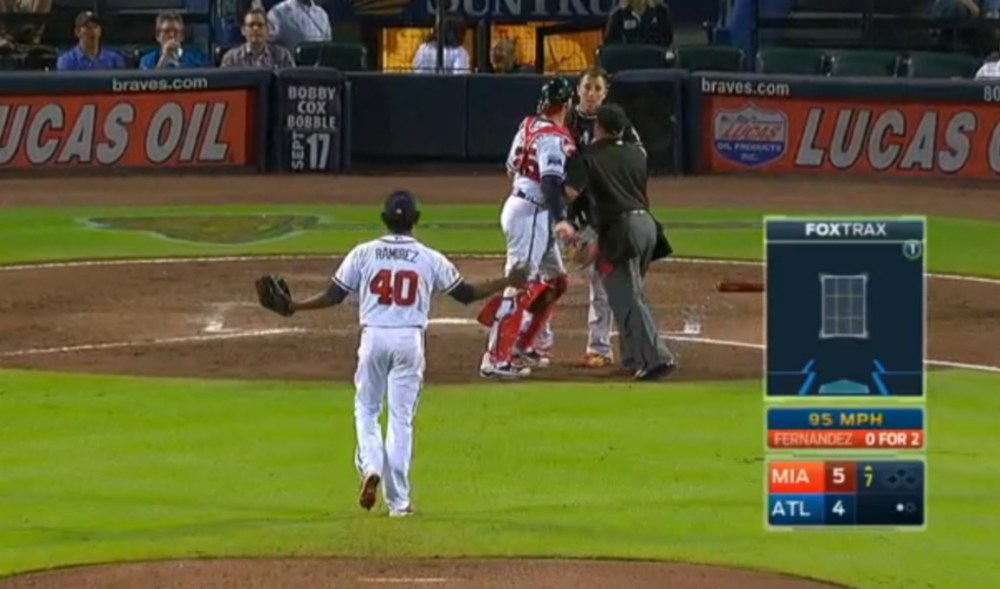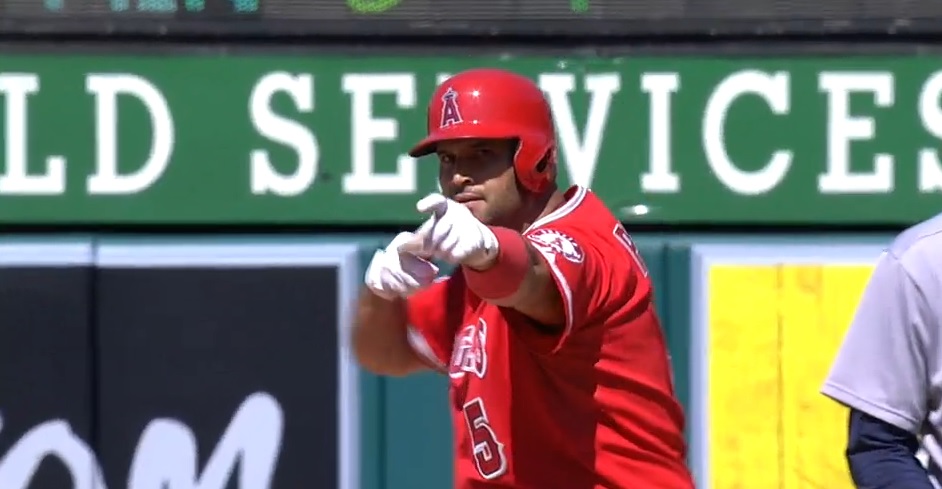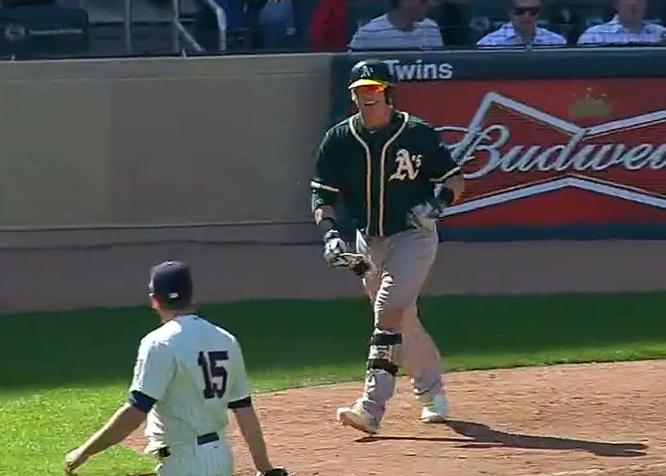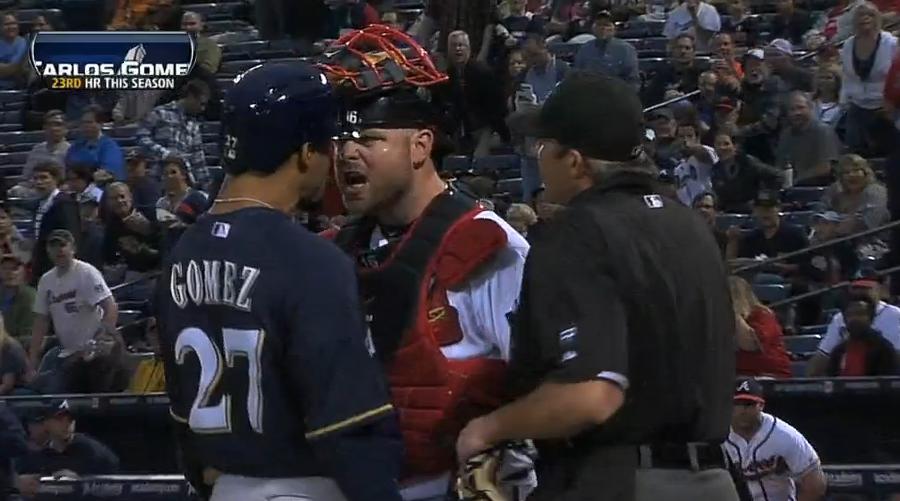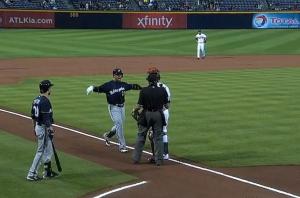
On Friday, Yasiel Puig homered twice against the Marlins. On Saturday, the first pitch he saw arrived fast and inside. He didn’t appreciate the coincidence.
It may have been exactly that—a coincidence—but Puig wasn’t about to abide by shenanigans from Miami starter Jose Urena, real or imagined. Even though the pitch didn’t hit him, he took angry steps toward the mound before Marlins catcher J.T. Realmuto, followed by players from both teams, intervened.
Here’s the thing: Puig didn’t like the possibility that an opponent might be sending a message about his prior success against them. That’s fair. What he’s discounting is that, following his second homer a night earlier—a go-ahead three-run shot—he did no small amount of showboating.
Sometimes teams don’t appreciate that.
Whether Urena intended to send a message doesn’t really matter to this particular argument. More than anybody, Puig is responsible for the widespread acceptance of batter’s box theatrics around baseball. He’s a bat-flip early-adopter, a guy so unremitting in the practice that pitchers, unable to tamp it out of existence, simply came around to accepting it as standard practice.
But if a guy like that wants to play that way, he has to be aware that some old-school holdouts might still take offense. Urena might be one of them. Or, as the pitcher said after the game, his two-seamer might simply have sailed a bit too far inside. If it’s the latter, there’s no reason for Puig to consider it. If it’s the former, Puig has to be aware that he himself was Urena’s muse.
(Marlins manager Don Mattingly denied any connection to an earlier kerfuffle between the teams. Even Dodgers manager Dave Roberts weighed in on Urena’s side, saying in an MLB.com report, “No one likes to be crowded, but [you have] to understand that there wasn’t intent, and it’s clear to me that there was no intent.”)
After the game, Urena told reporters that Puig “Got like a little baby” about the pitch. He was correct. Irrespective of Urena’s intentions, Puig—and any player at his end of the showboat spectrum—has to understand that such behavior will occasionally come at a cost. If said cost is being drilled, the decision to react may be justified. If the cost is simply having to jackknife out of the way, and then getting to hit from ahead in the count, Puig should grow the hell up.
Growing up seems to be a persistent problem for the guy. In this case it hardly mattered, as Urena lasted only three innings and the Dodgers won, 7-1. LA’s 3-2 win on Sunday featured no run-ins of note.
